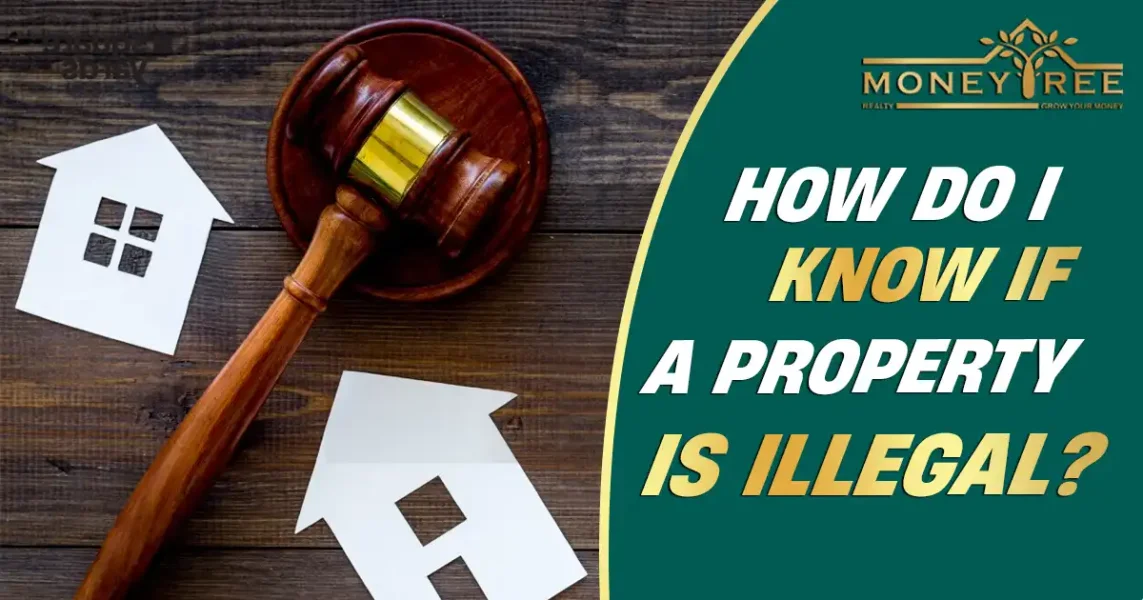Table of Contents
Buying an illegal property produces multiple serious difficulties that result in monetary damage and court battles plus the risk of forced property loss. Being in this situation requires you to know what legal actions exist to protect your rights as a buyer.
The primary question you must answer before buying property asks if the property is lawfully owned. The acquisition of illegal property results in substantial monetary loss combined with legal problems. The following article presents seven practical methods which help How to check if a property is illegal for making secure investment decisions.
Importance of Property Legality
The identification of illegal properties holds essential importance due to various significant factors. The acquisition of illegal properties leads to unexpected financial burdens which include government penalties together with potential demolition decrees and law court challenges. The properties often do not receive basic utility services such as water and electricity which renders them unable to be used for residential purposes.
Consequences of Illegal Property Purchase
7 Ways on How to Check If a Property Is Illegal
Checking if a property is legal along with absence of disputes becomes essential when deciding to acquire property for purchase. Officially unauthorized properties produce both major economic damage alongside legal difficulties for their owners. The verification process of an illegal property begins by carefully reviewing its official paperwork through seven essential methods.
1. Look Into the Property Papers
Essential documents to scrutinize in any real estate transaction
All real estate buyers need to examine property documents prior to purchasing any property. Key documents to review include:
2. Property Legality Verification Checklist
You're going to need these key documents
Another way on how to check if a property is illegal is to get standard property verification checklist based on legal requirements that makes the verification procedures more efficient. Essential documents to include are:
|
Document |
Purpose |
|---|---|
|
Title Deeds |
Show Ownership |
|
Encumbrance Certificate |
Shows any existing loans or mortgages |
|
Building regulations |
receive verification through an Approved Building Plan. |
|
occupancy certificate |
An occupancy certificate proves that the property is inhabitable. |
3. Confirm Ownership of Property
Ways and online resources to find out
One can verify ownership of their land both through national online services and by visiting local land registries. In India, these steps apply.
4. Check for RERA Registration
Importance of RERA registration and how it's checked
The RERA aims at providing protection to homebuyers. To verify the RERA registration of a property:
5. Tracking Encroachments
Where are the buildings that are not constructed on legally permissible property?
Spotting illegal buildings is critical. Here is how you can go about encroachment inquiries:
6. Widely Acceptable Input on Government Land
Unlike land encroached upon under the power of state authority, such lands are usually regarded as government lands because claims are made by owners.
In performing a property check, using government resources is non-negotiable. There are official records to aid your access through:
7. Property Online Check or Online Verification
In short, you could take to online methods of verification
The property verification procedures become simpler because of online tools. The process to verify property documents via India’s online systems follows these steps.
Tips to Prevent Property Fraud
Every person who plans to buy property needs to take necessary measures to avoid being vulnerable to property fraud schemes. Patience along with knowledge permits you to safeguard yourself against unlawful property deals. The identification of illegal properties functions as your initial protection for safely protecting your investment. Before purchasing a property landlords should look out for these particular indicators.
Signs of Illegal Properties
Detecting standard indicators of illegal properties generates protection against possible problems. Look for:
Steps to Avoid Illegitimated Purchases
Researching the following points helps you avoid purchasing illegal property:
Legal Actions for Illegal Property Transactions
Buying an illegal property produces multiple serious difficulties that result in monetary damage and court battles plus the risk of forced property loss. Being in this situation requires you to know what legal actions exist to protect your rights as a buyer. Being prompt with your actions helps decrease negative outcomes while preserving your rights during the buying process. The following approach shows you how to deal with the problem properly.
Recourse against Illegal Sellers
Individuals who purchase illegal properties need to consider several alternatives of action.
What if an Illegal Property is purchased?
Any mistake in purchasing an illegal property will bring serious consequences. You may experience eviction in addition to receiving penalties. It’s crucial to act quickly:
Frequently Asked Questions







